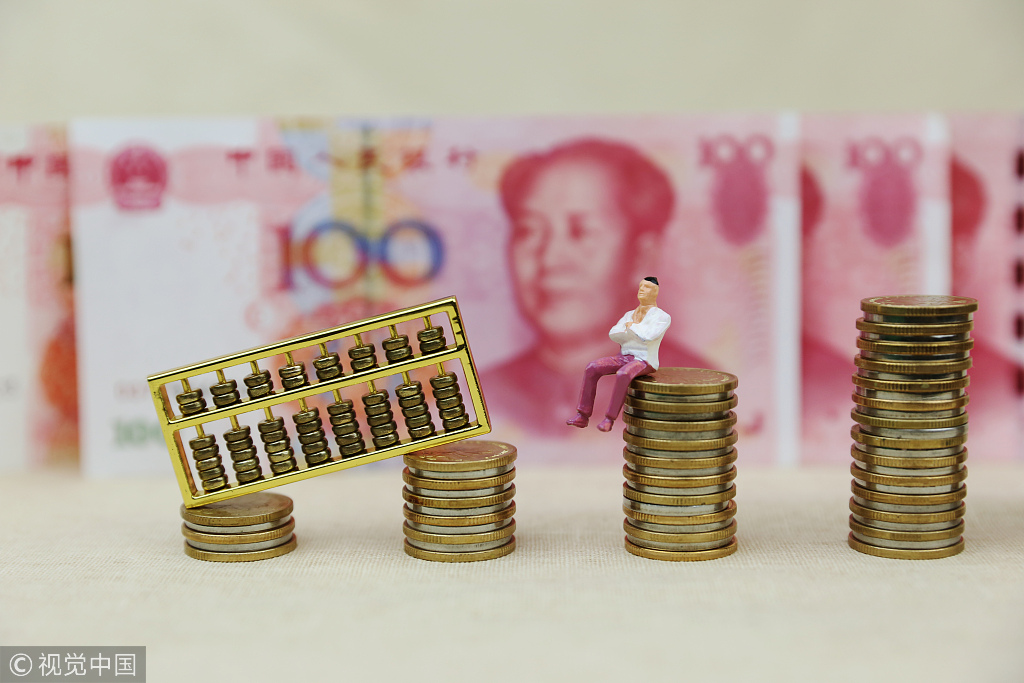More efficient debt-to-equity swaps urged


State Council meeting decides to ease companies' burdens, boost vitality
China will set up a proper pricing mechanism for debt-to-equity swap programs and develop new approaches for swap deals to help ease companies' debt burdens and boost their vitality, a State Council executive meeting chaired by Premier Li Keqiang decided on Wednesday.
It was pointed out at the meeting that a market-oriented, law-based debt-to-equity swap is an important measure to help companies with promising market potential to tackle debt burdens, promote steady growth and manage risk.
"Our efforts in pursuing market-oriented, law-based debt-to-equity swaps in the past few years have paid off. Work on this front has reached a crucial juncture, and it plays an important role in fostering an enabling business environment and energizing market vitality," Li said. "Without success in this endeavor, China's capital markets can hardly flourish."
Debt-to-equity swap programs worth over 900 billion yuan ($130.4 billion) have been implemented since early last year, resulting in a marked improvement in the performance of the companies concerned, it was stated at the meeting.
It was also decided to set up a proper pricing mechanism for swaps and to refine regulations over due diligence for State-owned enterprises.
Efforts will also be made in developing new approaches to pursue debt-to-equity swaps and the pilot program of debt-to-preferred-stock swaps should be expanded and innovated. Quality companies with a high debt ratio as well as quality business segments will be prioritized in debt-to-equity swaps.
"Our efforts in market-oriented, law-based debt-to-equity swaps have paid off, yet problems that have arisen in the process need to be tackled," Li said. "Going forward, we must confront the existing problems and tackle them head-on. What's important is to expand the scale and coverage of the swap deals and improve their quality to ensure that this endeavor achieves its desired results."
Multipronged measures will be implemented to help financial asset investment firms involved in swap programs replenish their capital.
Qualified trading floors will be permitted to trade assets in swap deals and ensure that financial asset investment firms play their important role in the debt-to-equity swap process.
It was also urged at the meeting to motivate private sectors to participate in swaps. Financial asset investment firms will be supported in launching asset management products and accepting investment from insurance and pension funds.
Publicly offered asset management products will be allowed to participate in swaps in keeping with relevant laws and regulations, and foreign investors are encouraged to take part.
"We need to explore ways for improved operation of financial asset investment companies. Meanwhile, we need to further motivate private investors to participate by widening access, making the deals more attractive and protecting their rights and interests," Li said.
- PBOC urges enterprises in pilot regions to issue 'green bonds'
- Leveraging private funds prioritized in BRI projects
- Why China loves buying British retail
- China's Bilibili raises over $870m in latest offering of ADSs, convertible bonds
- China's Bilibili extends gains after pricing of US-dollar denominated equity shares, convertible bonds



































